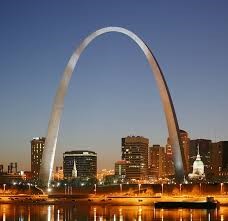
When I was a young child, I lived in the third largest city in Missouri – Springfield – and I hadn’t really traveled much outside of the region. At the time I loved to look at atlases and read maps, and I distinctly remember the day that I came across a factoid indicating that the largest city in Missouri was Kansas City (a city I’d never seen), with St. Louis a close second.
I was livid, convinced there was a mistake, for as we all know, being bigger is better, and St. Louis was clearly superior because I’d a) been there, and b) had fun there. In other words, my positive affiliations with St. Louis, while founded on nothing more than visiting some tourist draws and swimming in a motel pool, were enough for me to align my own identity with the city and therefore create strong positive, and in the context, illogical opinions about it. (Ironically, I now live in Kansas City).
But before we chalk this whole process up to the silly antics of childhood, what this anecdote reveals may prove a reasonably good description of the way that many people actually form perceptions and subsequently make decisions. This is particularly so when those decisions occur within the context of certain social institutions that we otherwise believe are founded on much higher, more critical principles.
Democratic elections are a great example. As the election cycle gears up in the US, a recent study done at the University of Kansas might give us some pause. The research indicates that many people vote for a particular party not because they want to forward any specific issue or policy matter, but simply because they want the other political party to lose. The study’s author, Dr. Patrick Miller, likens the voting process to a sports rivalry; to borrow Miller’s concept, we might say that the point of rooting for one’s own political team is self-promotion (for isn’t that what revenge is about, ultimately?) and thus has very little to do with “the sport” (i.e, beneficial public policy) itself.
In an intriguing parallel, some time back I wrote a post about the college sports rivalries that we have brewing here in Kansas City, and about how, as an outsider to these rivalries, it’s relatively easy for me to see that they are motivated by personal in-group affiliations (that is, the advancement of one’s own social standing) more than they have anything to do with the caliber of specific schools or the lauding of actual athletic skill. In other words, I saw a certain sort of personal promotion in sports and university affiliation that Miller sees in the American elections process, a promotion that operates under the guise of a completely different issue.
I think this commonality is important, for while Miller contextualizes this “politics as self-promotion” as a symptom of intensifying partisan gridlock, I think it’s fair to underscore that this is also a ubiquitous feature of social life. If there is ample evidence that the affiliations we make often have much to do with preserving our own privilege rather than the external issues we claim (and perhaps wholeheartedly believe) they are about, then this gives us an interesting theoretical frame through which to consider the functions behind the identity claims that social groups make.
For instance, most religious organizations know that public campaigns rarely convert people, although this may be their stated goal. However, this doesn’t prevent such organizations from talking about religion in public – a lot. This is not because religious groups love to waste money on things with little impact, but because their goal is not individual conversion as much as it is the purchase of social normalcy. As I constantly remind my students, being perceived as “normal” is one of the most powerful kinds of leverage that a person can hold in society. So what may sound like a plea for a conversion or a strong moral statement on a particular issue may practically amount to little more than a form of social advertising designed to reinforce the solidity of the group’s own position, whether or not others join in. Calling one thing another is pretty convincing when everyone else is doing it, or when it’s the way that things have always been done.
On the surface this may sound too simple; we are accustomed to talking about both religion and politics as highly complex and controversial realms. But from a realistic perspective, I suspect that most people treat voting as their chance to make society into themselves rather than to shape it according to any other larger (or even different) principle. This means that exercising one’s civic duty at the voting booth is often a process of self-endorsement operating under the guise of “the public good.”
photo credit: wikipedia
